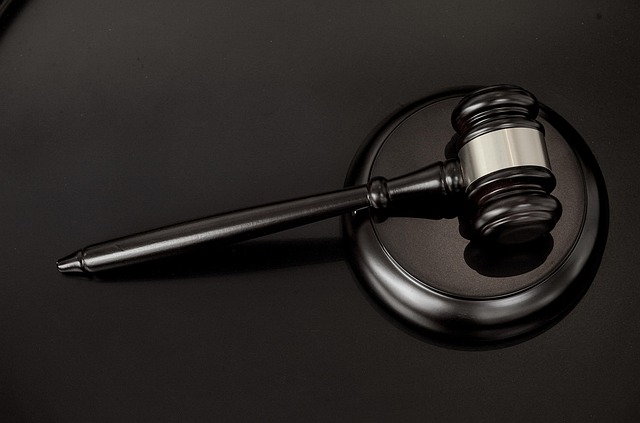In Oregon, driving under the influence (DUI) cases are met with stringent legal consequences aimed at deterrence. Effective DUI tactics involve challenging procedural errors during arrest and evidence admissibility, especially regarding field sobriety tests, breathalyzer, and blood tests. Expert testimonies and scientific data play a crucial role in building robust defenses. Negotiating plea bargains can lead to reduced charges or sentences. Post-conviction relief and appeals are also utilized to challenge guilt and sentence severity. Knowledgeable legal representation is paramount to navigate these complex procedures and achieve the best possible outcomes, ensuring that individuals' rights are protected throughout the process.
“Navigating Oregon’s complex DUI laws requires a strategic approach. This comprehensive guide unveils effective legal tactics for those facing drunk driving charges. From challenging procedural errors and understanding test admissibility, to leveraging expert testimonies and negotiating plea bargains, we demystify each step. Whether pre-trial or post-conviction, our article equips you with the knowledge to build a robust defense. Discover how these tactics can make a significant difference in your Oregon DUI case.”
- Understanding Oregon's DUI Laws and Penalties
- Challenging the Arrest: Procedural Errors and Miranda Rights
- Breathalyzer and Blood Tests: When Are They Admissible?
- Building a Strong Defense: Expert Testimonies and Scientific Challenges
- Negotiating Plea Bargains and Potential Sentencing Outcomes
- Post-Conviction Relief and Appeals: Seeking Reversal of Your DUI Conviction
Understanding Oregon's DUI Laws and Penalties

In Oregon, driving under the influence (DUI) is a serious offense with stringent legal repercussions. Understanding the state’s laws and penalties is the first step in employing effective DUI tactics. The primary focus of Oregon’s DUI legislation is to deter individuals from operating vehicles while impaired by alcohol or controlled substances. Law enforcement officers have broad powers to stop and investigate suspicious behavior, often relying on standardized field sobriety tests (SFSTs) to assess impairment.
The penalties for a DUI conviction in Oregon are severe, including fines, license suspension, and potential jail time. The state also imposes strict minimum sentences for repeat offenders. However, there are defenses available. Effective DUI tactics may involve challenging the admissibility of evidence obtained during an investigation, questioning the administration of sobriety tests, or presenting mitigating factors to reduce culpability. Knowledgeable legal representation is crucial in navigating these complex procedures and ensuring the best possible outcome.
Challenging the Arrest: Procedural Errors and Miranda Rights

Challenging the arrest is a crucial aspect of effective DUI (Driving Under the Influence) defense tactics in Oregon. One common strategy involves scrutinizing procedural errors that may have occurred during the initial stop and arrest. Police officers must adhere to strict protocols, such as pulling over a vehicle only when there is reasonable suspicion of intoxication or violation of traffic laws. Any deviation from these procedures can weaken the case against the defendant.
Additionally, understanding and asserting Miranda rights is essential. During an arrest, suspects are entitled to be informed of their right to remain silent and the potential consequences of waiving those rights. Legal professionals can challenge evidence if these rights were not properly explained or if statements made by the accused were obtained without a knowing and voluntary waiver. This aspect of challenging the arrest plays a significant role in effective DUI defense tactics, aiming to protect the legal rights and interests of individuals facing such charges.
Breathalyzer and Blood Tests: When Are They Admissible?

In Oregon, breathalyzer and blood tests are crucial pieces of evidence in DUI (driving under the influence) cases. However, their admissibility hinges on specific procedural and constitutional guidelines. Law enforcement officers must ensure that these tests are administered correctly to maintain their validity. For instance, the individual’s consent must be freely and voluntarily given, and the testing procedures should adhere to established protocols to prevent any form of tampering or error.
Effective DUI tactics involve understanding when these tests are admissible. Lawyers can challenge the evidence if there’s a violation of the accused’s rights or procedural flaws during the testing process. Knowing the legal requirements for breathalyzer and blood tests enables defense attorneys to employ strategic arguments, potentially undermining the prosecution’s case and leading to more favorable outcomes for their clients.
Building a Strong Defense: Expert Testimonies and Scientific Challenges

Building a robust defense is paramount in DUI cases, and expert testimonies along with scientific challenges play a pivotal role in Oregon courts. Legal professionals skilled in DUI defenses often enlist experts like forensic toxicologists and accident reconstructionists to provide insights on various aspects of the case. These experts can critically examine breathalyzer or blood test results, questioning their reliability and validity. They may also analyze the procedures followed by law enforcement during the arrest and testing process, pointing out any deviations from established protocols that could compromise evidence.
By presenting expert opinions and scientific data, defense attorneys aim to cast doubt on the prosecution’s case, ultimately demonstrating that the defendant’s rights were not violated and that the alleged DUI was not proven beyond a reasonable doubt. This strategic approach is among the effective DUI legal tactics employed in Oregon, ensuring fair trials and just outcomes for those accused of driving under the influence.
Negotiating Plea Bargains and Potential Sentencing Outcomes

When facing a DUI charge in Oregon, negotiating a plea bargain can be one of the most effective legal tactics. This process involves discussing a potential agreement with the prosecution, which may include pleading guilty to a lesser charge or accepting a reduced sentence in exchange for a plea. Such negotiations are based on understanding the specific circumstances of the case and the evidence against the defendant.
The potential sentencing outcomes vary widely depending on factors like prior convictions, blood alcohol content (BAC), and cooperative behavior during the legal process. A skilled defense attorney can help navigate these complexities, aiming for a favorable outcome that minimizes the impact of the DUI charge. Effective DUI tactics often involve leveraging these negotiations to achieve the best possible resolution, ensuring justice without overly harsh penalties.
Post-Conviction Relief and Appeals: Seeking Reversal of Your DUI Conviction

After a DUI conviction in Oregon, individuals often explore post-conviction relief options and appeals as part of their legal strategy. This process allows them to challenge their initial guilt or sentence, aiming for a reversal that can lead to reduced penalties or even dismissal of the charges. A skilled attorney can help navigate these complex procedures, ensuring every available avenue is explored within the strict time frames mandated by Oregon law.
Effective DUI tactics in appeals often involve scrutinizing evidence handling, procedural errors, and constitutional challenges. For instance, if police failed to follow proper protocols during a traffic stop or breathalyzer administration, it may weaken the prosecution’s case. By presenting compelling arguments and supporting evidence, legal representatives can advocate for their client’s rights, potentially leading to a favorable outcome that reduces the impact of the DUI conviction.






